Plastic -Recycling- Wood-based-fibres 07-04-2022 - Arhive
Plastic -Recycling- Wood-based-fibres
-First Conti tires with polyester from recycled PET bottles
Continental has become the first tire manufacturer to launch volume production of recycled polyester yarn, which is obtained from PET plastic bottles in a new process. The new high-performance material will first be used in selected sizes for Continental’s PremiumContact 6 and EcoContact 6 summer tires and the AllSeasonContact tire. This completely replaces the conventional polyester in the carcass of the selected tires. A set of standard passenger car tires uses the material from around 40 recycled PET bottles. Plastic -Recycling- Wood-based-fibres
Unveiled in September 2021, Continental’s ContiRe.Tex technology uses polyester yarn obtained from used PET bottles without any intermediate chemical steps, making the technology more efficient than other standard methods for processing PET bottles into high-performance polyester yarns. The bottles used for the technology come exclusively from regions without a closed recycling loop. As part of a special recycling process, the bottles are sorted and mechanically cleaned, after the caps are removed. After mechanical shredding, the PET is further processed into granulate and finally spun polyester yarn.
“We only use high-performance materials in our premium tires. From now on, these will include polyester yarn from PET bottles, made in a particularly efficient recycling process. We brought our innovative ContiRe.Tex technology to the production stage in just eight months. I’m proud of our entire team for this remarkable achievement,” said Ferdinand Hoyos, who heads Continental’s tire replacement business in Europe, Middle East and Africa. “We’re constantly expanding the share of renewable and recycled materials in our tires. By 2050 at the latest, we want to use only sustainable materials in our tire production.”Plastic -Recycling- Wood-based-fibres
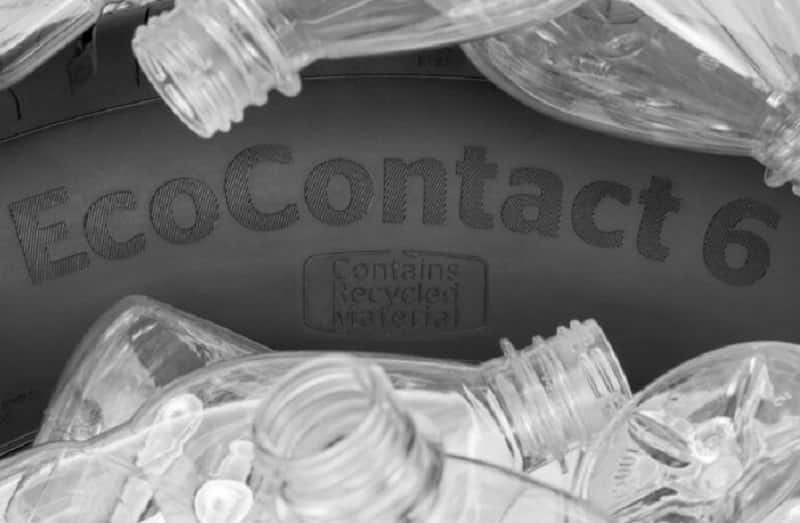
-PerfoTec presents innovative recyclable film
PerfoTec’s team of experts are ready to conquer the world with their fight to reduce waste by offering a special recyclable film with a higher-water vapour permeability and carbon dioxide permeability compared to the current films present on the market.
At this moment packagers around the world are using a BOPP film to pack fresh produce. PerfoTec have designed a new film with properties that support and improve the freshness of fresh produce. And the good news is that the price range of this new film is equal as the standard BOPP film. Plastic -Recycling- Wood-based-fibres
The development of this new film was a challenging process as the new film should fulfil several requirements. An important feature is the machinability for the packaging industry, so strength and flexibility should be equal to BOPP film. PerfoTec also wanted the new film to have better high-water vapour permeability and carbon dioxide permeability. The carbon dioxide permeability combined with micro perforation better controls the respiration rate of the fresh produce and therefore the freshness of the packed fruit and veggie. The water vapour permeability prevents condensation in the packaging and this is beneficial because the product can stay fresh longer.
The results for spinach are stunning and despite some tests that are still running, PerfoTec cannot wait to inform the world. With normal BOPP packaging the freshness of spinach in the European cold chain channels reach up to 6 or 7 days. PerfoTec tested the extra freshness under several conditions. In a controlled environment with stable temperatures and spinach directly packed from harvest with the new innovative film in combination with PerfoTec’s technology, the freshness reached up to 21 days! Compared with the standard packed spinach which was already in a bad quality and had an off smell, the spinach packed with the new technology had no yellowing of the leaves and smelled and tasted fresh. Food safety requirements were also met. Plastic -Recycling- Wood-based-fibres
Other tests are still running and those results will be presented after the Fruit Logistica fair in Berlin. Our Global Sales Manager Stefano Hiwat is the contact person for this special innovative film if you want to learn more about those stunning result. You can also visit us in Berlin at Hall 3.1 and stand B.09.
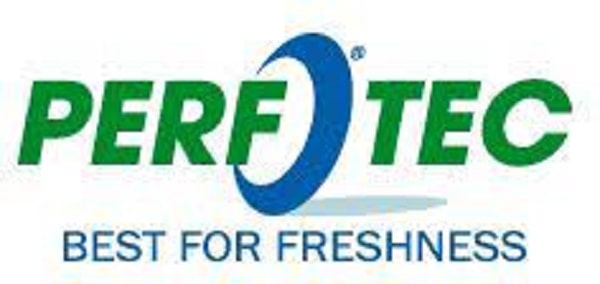
-Extrupet expands food-grade plastic recycling operations in SA
Extrupet, one of the largest and most advanced recyclers of plastics on the African continent, has announced a major expansion of its food-grade plastic recycling operations in South Africa.
“Extrupet is proud to announce that we will double our food-grade operations by adding a fourth food-grade recycled PET (rPET) facility, which will increase our recycling capacity by an additional 33 000 tons per year,” says Chandru Wadhwani, joint managing director at Extrupet. Plastic -Recycling- Wood-based-fibres
“The demand for food-grade recycling keeps on increasing, especially as retailers and consumers alike opt for more environmentally friendly options,” Wadhwani adds.
“Currently, only 60% of South Africa’s plastic bottles are recycled. With this increased capacity, we will be able to accommodate more of South Africa’s plastic waste and strengthen South Africa’s position as a circular economy leader in Africa and the world,” Wadhwani says. Plastic -Recycling- Wood-based-fibres
The recycler says that the first phase of this expansion is slated for Cape Town and is expected to be fully operational in 2023. The development will cost approximately R300-million and will create additional jobs in the PET bottle collection industry.
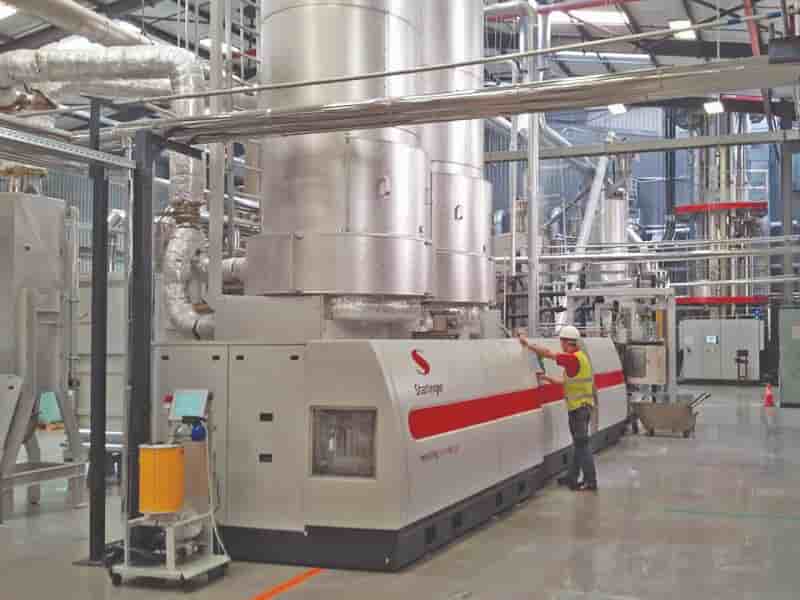
-IFAT 2022: Efficient recovery of recyclable materials in line with the Circular Economy
At IFAT 2022, Lindner will present innovative shredders and system solutions that maximise efficiency and output gains and enable waste disposal and recycling companies to successfully enter the field of plastics recycling.
“Make the most of waste” – This motto has been guiding Lindner Recyclingtech’s work for many, many years, and yet it is more relevant than ever. The Green Deal and the associated New Circular Economy Action Plan (CEAP) call not only for the reduction of CO2 emissions, electrification of the economy and greater energy efficiency but, above all, ask for potential secondary raw materials contained in material flows to be better processed and analysed. At the IFAT 2022, hall B6, booth 251/350, Lindner will be showcasing solutions for these industry-specific and future-oriented challenges and will also be presenting ways to obtain and process recyclable plastics. Plastic -Recycling- Wood-based-fibres
From zero to hero in plastics recycling
Plastics recycling is becoming increasingly important in waste management. Improved sorting and shredding systems enable potential secondary raw materials – including plastics – to be optimally extracted. At the IFAT 2022, Lindner is reaching out to waste disposal and recycling companies who want to take advantage of Lindner’s extensive, long-standing plastics expertise and actively enter this emerging industry. In addition to its experience in sorting, shredding, and washing, Lindner also offers specific consulting on individual or system solutions and engineering.
Saving energy and increasing output
The future belongs to the electric motor. Energy-saving, they make a valuable contribution to reducing operating costs, saving CO2, and promoting a future with lower emissions. Lindner’s innovative E-models, which are available in both stationary and mobile, offer cost-effective operation with optimised efficiency at all times. The DEX (Dynamic Energy Exchange) is one of Lindner’s signature features and ensures maximum efficiency and consistent performance through its active recovery of braking energy.
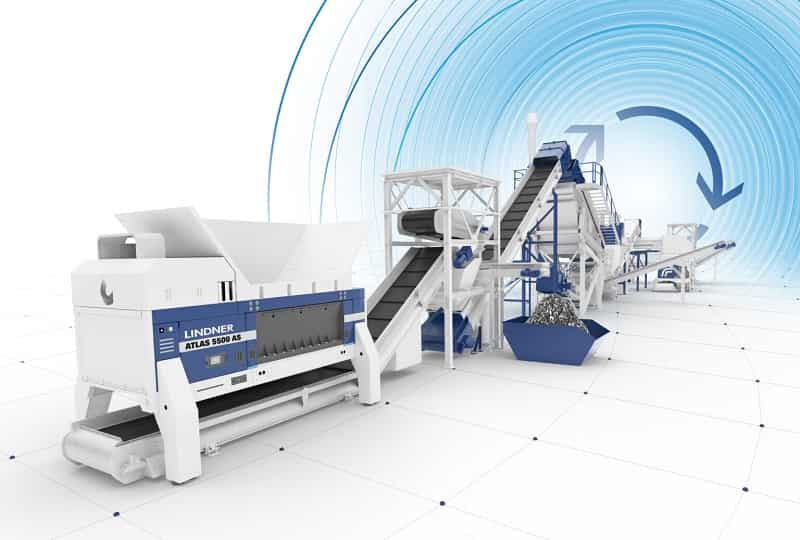
-Birla plans 100,000 tons of circular fibre by 2024
Circulose dissolving pulp from textile waste will be a component of Liva Reviva for fashion brands.
Mumbai-headquartered Birla Cellulose, already one of the world’s largest man-made cellulosic fibre producers, has announced a commercial collaboration with Renewcell, the Swedish textile-to-textile recycling innovator.
The intention is to supply up to an annual 30,000 tons of Renewcell’s Circulose in Birla’s Liva Reviva fibres to global fashion brands and the textile industry in the coming years. Plastic -Recycling- Wood-based-fibres
“Renewcell and Birla Cellulose have collaborated almost since the founding of our company,” said Patrik Lundström, CEO of Renewcell. “We have benefited from the company’s technical expertise and customer feedback throughout the development and ongoing commercialisation of Circulose. With recent trial successes, growing fashion brand demand and the upcoming commissioning of our new commercial-scale recycling plant in Sundsvall, Sweden, the time is now right to proceed to large-scale commercial collaboration. Together with Birla Cellulose we will work to make fashion circular and reduce its negative impact on climate and the environment.”

-Linear to Circular for Lenzing
Austrian fibre group presents Online Sustainability Report for the first time and marches purposefully towards Group-wide climate neutrality.
The Lenzing Group, the world’s leading supplier of wood-based specialty fibres, released its Sustainability Report 2021 today, on the occasion of Earth Month. Bearing the title ‘Linear to Circular’, the report emphasizes the company’s focus on carefully balancing its needs with those of nature in the spirit of the circular economy.
The report has been prepared in accordance with the standards of the Global Reporting Initiative (GRI) and the Austrian Sustainability and Diversity Improvement Act (NaDiVeG) and audited by KPMG Austria GmbH Wirtschaftsprüfungs- und Steuerberatungsgesellschaft.
“Our innovations in relation to the circular economy and biodegradability stem from a deep sense of responsibility to our planet and a desire to act in ways that future generations can be proud of. We hope that you will discover and share this sense of responsibility when you read the Lenzing Sustainability Report 2021,” notes Robert van de Kerkhof, Member of the Managing Board of Lenzing Group.
Aiming for a carbon-neutral future
With the implementation of the two key projects in Brazil and Thailand, as well as with the investments at the existing Asian sites in China and Indonesia amounting to EUR 200 million, Lenzing continues to march purposefully towards Group-wide climate neutrality. In 2019, it became the first fibre manufacturer to set a target to reduce its carbon emissions by 50% by 2030 and to be net-zero by 2050. This carbon reduction target has been verified and approved by the Science Based Targets Initiative.
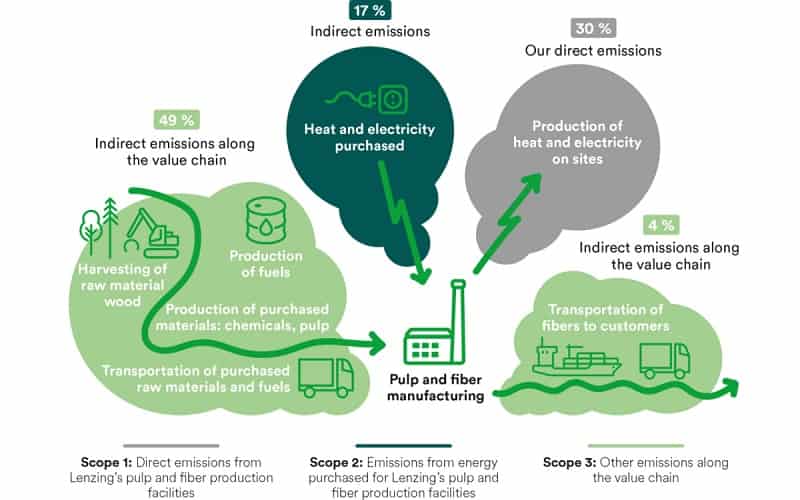
Plastic -Recycling- Wood-based-fibres
